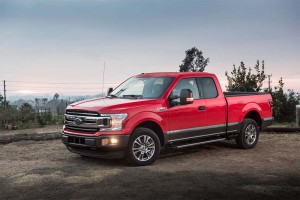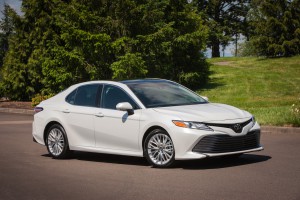
Not only are millennials buying new vehicles in large numbers, guess what kind of vehicles they're buying!?
According to conventional wisdom, you’ll still find millennials living at home, spending most of their time playing video games or connecting on Snapchat. The last thing they want to do is drive, and they’re as likely as not never having bothered to get a license.
Well, as often is the case, conventional wisdom isn’t always the real story. And new research from data tracking firm Experian reveals that lots of millennials not only have gotten licensed but also are now buying cars. In fact, so many of them are showing up at showrooms that they may help explain why new car sales haven’t tumbled the way they were expected to this year, after a weak 2017.
“Millennials accounted for all new vehicle sales growth in the North American auto industry during the first quarter of 2018,” Marty Miller, a senior auto industry consultant with Experian, said during an interview with TheDetroitBureau.com.
The shift has been accelerating during the last few years, becoming all the more important for the auto industry as aging Baby Boomers reach the point in life where they’re buying fewer new vehicles. During the first quarter of 2018, Experian records show, Boomers accounted for 38.7% of U.S. new vehicle purchases. That was down to 34.1% during the first quarter of this year.
Boomers still make up the largest car-buying cohort, but millennials are gaining on them rapidly, growing from 22.2% of U.S. car buyers to 29.7% during the same period. That means they bought more new vehicles from January to March of this year than Gen-Xers. In fact, that tweener generation also saw a decline from 2014 to 2018, with the share of car purchases slipping from 27.7 to 27.2%.
(US auto sales predicted to be flat in July. Click Here to find out why.)
“People may not understand millennials as much as was though in the past,” said Miller. “They’re growing up. They have more money and are starting families … which typically leads to vehicle purchases.” That’s especially true among Millennials who leave urban environs for the suburbs when they have children, other studies have indicated.
The pace at which Millennials are starting to buy cars appears to be accelerating, in fact. Their share of the U.S. new vehicle market jumped from 27.9 to 29.7% in just one year, Experian reported, comparing the first quarter of 2017 to the first quarter of this year.
That’s a significant trend for the auto industry to pay attention to, Miller stressed, suggesting “Carmakers (should be) putting things into vehicles that appeal to millennials.”
The industry appears to be getting the message, according to J.D. Power and Associates’ newly released APEAL study, a measure of customer satisfaction with their new vehicles. It reached a record high, Power’s auto research director Dave Sargent crediting the significant increase in content in the newest models. Much of that is in the form of high-tech features like infotainment systems equipped with Apple CarPlay and Android Auto, content particularly appealing to digitally savvy millennials.
(Click Here to see more about the new Mercedes-Benz A-Class.)
Even so, Experian’s latest study found that millennials aren’t as different from their parents and older siblings than might be expected. SUVs were the most popular vehicles, overall in the group, while three full-sized pickups – the Ford F-150, Chevrolet Silverado 1500 and Ram 1500 – were among the top 10 models millennials bought between January and March of this year. That list included only three sedans, the compact Honda Civic and midsize Honda Accord and Toyota Camry.
“Overall, are they buying different vehicles” from older generations, Miller asked, answering his own question with a resounding, “No,” while adding they’re more likely to buy the same vehicles as their parents than did prior generations.
Perhaps the biggest surprise, Experian’s study reveals, is that “millennials don’t seem to be buying as many green cars” as their generational image might suggest, said Miller.
(To see more about J.D. Power’s latest APEAL survey, Click Here.)
Of course, that may be because of the limited number of models currently available. But, at least for now, 94.4% of the products they bought during the first quarter were gas-fueled, with another 2.5% running on diesel. Hybrids accounted for 2.4% and all-electric models made up a mere 0.4%. The rest were unaccounted for.


